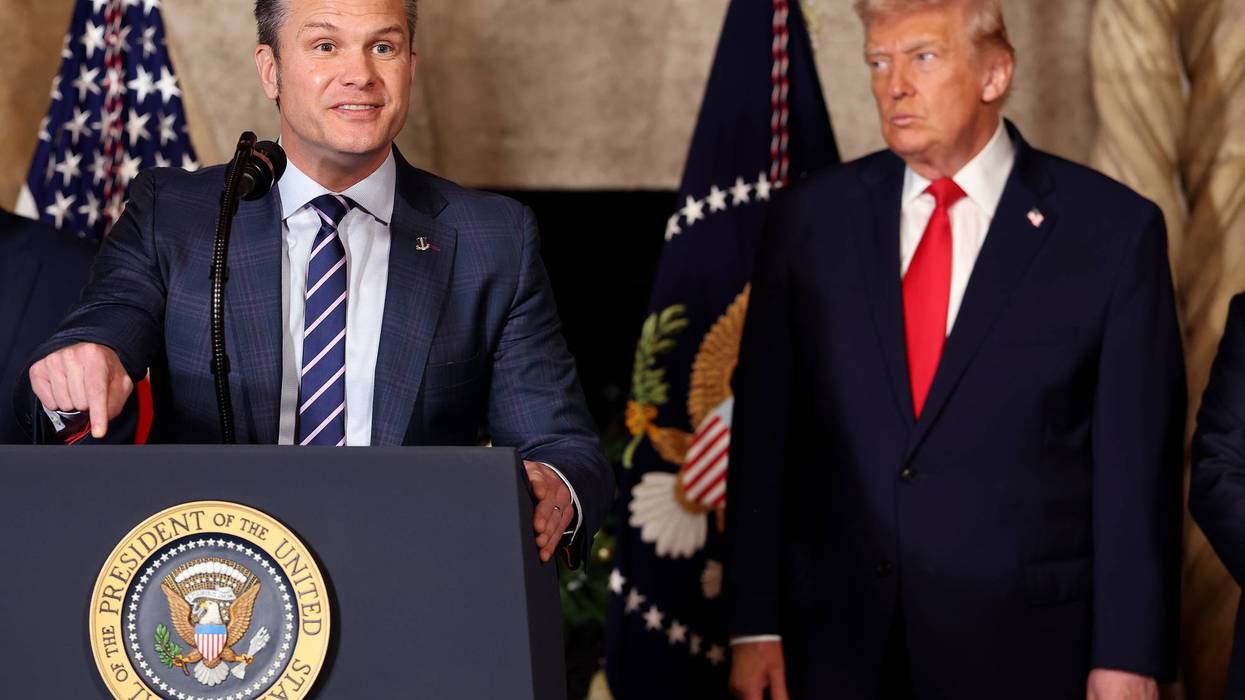January, 06 2014, 11:00pm EDT

Nearly 11,000 Acres of Critical Habitat Protected for South Florida Plant
Cape Sable Thoroughwort Gets Reprieve From Sea-level Rise
ST. PETERSBURG, Fla.
In accordance with a landmark settlement agreement with the Center for Biological Diversity, the U.S. Fish and Wildlife Service today finalized designation of 10,968 acres of protected critical habitat for the Cape Sable thoroughwort, a rare plant found only in South Florida and threatened by habitat destruction. Even with today's designation, however, the thoroughwort is likely to continue to be severely threatened by sea-level rise unless global emissions of greenhouse gases are reduced.
"This habitat protection will give the plant a fighting chance at surviving sea-level rise," said Jaclyn Lopez, a Florida-based Center attorney. "The quality and quantity of the habitat will buy the plant time as the surrounding landscape changes or is lost to the sea."
The plant once occurred in Monroe County and along Florida Bay in Everglades National Park. Now no more than a few thousand plants survive on the park's southern tip and on a handful of Keys. More than 10,000 acres of habitat, on mostly federal and state land, will be protected in Everglades National Park, Key Largo, Upper Matecumbe Key, Lignumvitae Key, Lower Matecumbe Key, Long Key, Big Pine Key, Big Munson Island and Boca Grande Key.
If worst-case sea-level rise projections become a reality, much of the plant's habitat will be inundated. To combat that threat, the Fish and Wildlife Service designated upland unoccupied habitat. But in order to survive, the plant will likely need to be reintroduced to suitable higher-elevation sites outside its historical range, and scientists predict that it will likely evade extinction only if emissions are reduced and the worst sea-level rise predictions are not realized.
The decision is part of a historic settlement agreement signed with the Center for Biological Diversity that requires expedited decisions on protection for 757 species around the country and has to date resulted in endangered species protections for more than 100 species.
At the Center for Biological Diversity, we believe that the welfare of human beings is deeply linked to nature — to the existence in our world of a vast diversity of wild animals and plants. Because diversity has intrinsic value, and because its loss impoverishes society, we work to secure a future for all species, great and small, hovering on the brink of extinction. We do so through science, law and creative media, with a focus on protecting the lands, waters and climate that species need to survive.
(520) 623-5252LATEST NEWS
Trump Says He's 'Entitled' to Illegal Third Term as Allies Draft Voter Suppression Decree
Extensions of presidential terms or abolition of limits are hallmarks of dictators and backsliding leaders of erstwhile democracies.
Feb 27, 2026
President Donald Trump raised eyebrows and angst among democracy defenders Friday for saying he deserves an unconstitutional third term in office, remarks that came a day after reporting that right-wing activists are drafting an executive order that could empower him to ban mail-in ballots and voting machines ahead of the 2026 midterm elections.
"Maybe we do one more term. Should we do one more?" the 79-year-old Republican president asked attendees of an event at the Port of Corpus Christi in Texas, to roaring applause. "Do one more term. Well, we are entitled to it."
During his State of the Union address on Tuesday, Trump rehashed his thoroughly debunked claim that Democrats stole the 2020 election for former President Joe Biden, saying this "should be my third term."
A third term would require a constitutional amendment, as the 22nd Amendment restricts US presidents to two terms in office.
Trump: Maybe we do one more term. Should we do one more? One more term. Well, we are entitled to it. pic.twitter.com/Niue0Q75Oo
— Acyn (@Acyn) February 27, 2026
Extensions of presidential terms or abolition of limits are hallmarks of dictators and backsliding leaders of erstwhile democracies. After Chinese President Xi Jinping lifted constitutional term limits in 2018, Trump marveled, "He's great," adding, "He's now president for life."
Trump has made cryptic allusions to a third term in office on multiple occasions.
While many Trump supporters believe he should also be president for life, his allies in actual positions of power—including Sen. Lindsey Graham (R-SC) and political strategist and convicted fraudster Steve Bannon, whom Trump granted clemency—have backed a third term for his administration.
A constitutional amendment enabling a third Trump term is not under any consideration and is all but impossible by the 2028 election. So Trump and his allies are working on other ways for the president to remain in office, focusing heavily on voter suppression. The Washington Post reported Thursday that a group of right-wing activists is writing a draft decree that would give the president “extraordinary power over voting." On Friday, Democracy Docket published an April 2025 version of the draft order provided by a Trump ally, which the outlet described as "riddled with errors."
According to the Post, the draft executive order would cite the pretext of alleged Chinese interference in the 2020 election. The Office of the Director of National Intelligence concluded that there was no such interference.
MS NOW national security contributor Marc Polymeropoulos called the draft order “batshit authoritarianism."
Keep ReadingShow Less
Trump Cuts Off Anthropic, AI Firm That Stood Against Killer Robots and Mass Surveillance
"Demanding security guardrails for how AI is used by the Department of Defense isn't radical—it's protecting the constitutional rights of the American people," said New Jersey's Democratic governor.
Feb 27, 2026
US President Donald Trump "is throwing this tantrum and calling Anthropic 'radical left' because they refuse to have their AI be used for illegal mass surveillance and murder. That's literally it."
That's how progressive commentator Kyle Kulinski described Trump's Friday social media post "directing EVERY Federal Agency in the United States Government to IMMEDIATELY CEASE all use" of the artificial intelligence firm's technology—including its chatbot Claude.
As Kulinski's podcast co-host and wife Krystal Ball summarized, "According to the president, objecting to autonomous killer robots and mass surveillance is 'radical left.'"
Earlier this week, Defense Secretary Pete Hegseth gave Anthropic until 5:01 pm Eastern time Friday to agree to let the Pentagon use the company's AI tech however it wants. He threatened to declare Anthropic a "supply chain risk," effectively blacklisting it for military use and ending its current contract, or invoke the Defense Production Act, which would force the company to tailor the product to the Department of Defense's (DOD) needs.
After the DOD reportedly sent Anthropic its "best and final" offer Wednesday night, the company's CEO, Dario Amodei, published a blog post explaining that "we cannot in good conscience accede to their request," and reiterated opposition to enabling autonomous weapons or surveillance of US citizens.
While Anthropic employees, other tech experts, and critics of the current administration praised Amodei for "standing on principle" and choosing "war with the Department of War"—the president's preferred name for the Pentagon—Trump predictably lashed out at the company on his Truth Social platform.
"THE UNITED STATES OF AMERICA WILL NEVER ALLOW A RADICAL LEFT, WOKE COMPANY TO DICTATE HOW OUR GREAT MILITARY FIGHTS AND WINS WARS! That decision belongs to YOUR COMMANDER-IN-CHIEF, and the tremendous leaders I appoint to run our Military," Trump wrote Friday afternoon.
"The Leftwing nut jobs at Anthropic have made a DISASTROUS MISTAKE trying to STRONG-ARM the Department of War, and force them to obey their Terms of Service instead of our Constitution," he continued. "Their selfishness is putting AMERICAN LIVES at risk, our Troops in danger, and our National Security in JEOPARDY."
Directing agencies to stop using Anthropic's tech, Trump added:
We don't need it, we don't want it, and will not do business with them again! There will be a Six Month phase out period for Agencies like the Department of War who are using Anthropic's products, at various levels. Anthropic better get their act together, and be helpful during this phase out period, or I will use the Full Power of the Presidency to make them comply, with major civil and criminal consequences to follow.
WE will decide the fate of our Country—NOT some out-of-control, Radical Left AI company run by people who have no idea what the real World is all about. Thank you for your attention to this matter. MAKE AMERICA GREAT AGAIN!
Amodei had notably written in his blog post that "our strong preference is to continue to serve the department and our warfighters—with our two requested safeguards in place. Should the department choose to offboard Anthropic, we will work to enable a smooth transition to another provider, avoiding any disruption to ongoing military planning, operations, or other critical missions."
While Trump's order preceded Hegseth's initial deadline, the defense secretary publicly weighed in at 5:14 pm, writing on Elon Musk's social media network X that "this week, Anthropic delivered a master class in arrogance and betrayal as well as a textbook case of how not to do business with the United States government or the Pentagon."
Hegseth described the company's terms of service as "defective altruism," and reiterated the Pentagon's position that "the Department of War must have full, unrestricted access to Anthropic's models for every LAWFUL purpose in defense of the republic."
The Pentagon chief also officially directed the DOD to designate the company a supply chain risk to national security, meaning that "effective immediately, no contractor, supplier, or partner that does business with the United States military may conduct any commercial activity with Anthropic."
"Anthropic will continue to provide the Department of War its services for a period of no more than six months to allow for a seamless transition to a better and more patriotic service," Hegseth added. "America's warfighters will never be held hostage by the ideological whims of Big Tech. This decision is final."
The New York Times noted that "the Pentagon is ready to move forward with Grok, produced by Elon Musk's xAI, on its classified system. But Grok is considered by current and former government officials to be an inferior product. And switching AI software would take time and almost certainly cause disruption."
While Anthropic hasn't publicly responded to Trump or Hegseth, critics, including congressional Democrats, have continued to praise the company and blast the administration for how they've each handled the conflict this week.
"Anthropic objected in part to the Department of Defense using its AI technology to engage in domestic mass surveillance. Do you agree that's a radical left, woke position?" asked Congressman Ted Lieu (D-Calif.). "That's actually the constitutional position, one that should be embraced by Americans regardless of party."
Replying to Trump's post specifically, Democratic New Jersey Gov. Mikie Sherrill similarly said: "Yet another alarming attack by the president on a private company defending its principles. Standing up against mass surveillance and demanding security guardrails for how AI is used by the Department of Defense isn't radical—it's protecting the constitutional rights of the American people."
Describing himself as "one of Congress' most vocal proponents for the modernization" of DOD and US intelligence community (IC) missions with transformative technology, Senate Select Committee on Intelligence Vice Chair Mark R. Warner (D-Va.) said in a statement that "the president's directive to halt the use of a leading American AI company across the federal government, combined with inflammatory rhetoric attacking that company, raises serious concerns about whether national security decisions are being driven by careful analysis or political considerations."
"President Trump and Secretary Hegseth's efforts to intimidate and disparage a leading American company—potentially as the pretext to steer contracts to a preferred vendor whose model a number of federal agencies have already identified as a reliability, safety, and security threat—pose an enormous risk to US defense readiness and the willingness of the US private sector and academia to work with the IC and DOD, consistent with their own values and legal ethics," he continued.
"Indeed," he added, "Secretary Hegseth's loud insistence on the sufficiency of an 'all lawful purposes' standard provides cold comfort against the backdrop of Pentagon leadership that has routinely sidelined career military attorneys and challenged longstanding norms and rules regarding lethal force."
Keep ReadingShow Less
'Peace President' Trump Floats 'Friendly Takeover' of Cuba While Preparing to Attack Iran
"Trump ran on an explicitly anti-interventionist platform when he ran for president," noted one critic. "He lied to the American people."
Feb 27, 2026
As the world braces for a possible US war on Iran and people in Venezuela, Nigeria, and Yemen still reel from recent US attacks, President Donald Trump—the self-proclaimed "peace president" who has bombed more countries than any other American administration—said Friday that the United States may launch a "friendly takeover" of Cuba.
"The Cuban government is talking with us, they're in a big deal of trouble, as you know," Trump told reporters outside the White House before departing for Texas. "They have no money. They have no anything right now. But they're talking to us, and maybe we'll have a friendly takeover of Cuba."
"We could very well end up having a friendly takeover of Cuba," he added.
Cuban Deputy Foreign Minister Carlos Fernández de Cossío posted on social media Friday that "the US maintains its fuel embargo against Cuba in full force, and its impact as a form of collective punishment is unwavering."
"Nothing announced in recent days changes this reality," he added. "The possibility of conditional sales to the private sector already existed and does not alleviate the impact on the Cuban population."
Trump's comments sparked criticism on social media, with one X user writing: "A 'friendly takeover' is an interesting phrase in international diplomacy. If the US is discussing Cuba’s future, I’m sure [Russian President] Vladimir Putin is suddenly very interested in the definition of friendly' too."
University of North Texas, Dallas political science professor Orlando Pérez said on X that "more often than not, [Trump's] mouth is his worst enemy."
"This BS plays into the hands of hard-liners on both sides of the Florida Straits and reduces chances of a negotiated deal," he added. "Why would anyone in Cuba agree to a deal that leads to a US 'takeover'?"
Meanwhile, dozens of civil society groups on Friday sent a letter to Congress urging lawmakers "to press the Trump administration to reverse its aggressive policy towards Cuba."
"Instead, Congress should call on the administration to expand humanitarian relief, support political and economic engagement, and foster a more vibrant private sector that can deliver a better quality of life for the Cuban people," added the groups, which include Alianza Americas, American Friends Service Committee, CodePink, Demand Progress, Peace Action, Presbyterian Church USA, RootsAction, United Church of Christ, and Win Without War.
Trump's remarks Friday came in response to a question from NBC News senior White House correspondent Gabe Gutierrez regarding Wednesday's incident in which Cuban maritime defense forces killed four men and captured six others during a shootout with a Florida-registered speedboat allegedly carrying weapons intended for what Havana called “an infiltration for terrorist purposes.” South Florida has long been a base for right-wing Cuban exiles who have launched numerous terror attacks against the Cuban people and international tourists on the island, including by speedboat strafings.
Trump did not clarify his comments, seemingly suggesting that moves to topple Cuba's socialist government—which has outlasted a dozen US presidents—could be freshly afoot. Since Cubans overthrew a brutal US-backed dictatorship in 1959, the United States or allied exile forces tried to assassinate former Cuban President Fidel Castro hundreds of times, backed an ill-fated invasion at Bay of Pigs, served as a base for perpetrators of some of the hemisphere's worst terror attacks, and even hatched a plan to detonate a nuclear bomb high above the island to convince its people that the return of Jesus Christ was nigh and the only thing standing in the way of the so-called "Second Coming" was Castro.
A 64-year US economic embargo on Cuba, which Trump recently worsened by cutting off fuel, has been a leading force crippling Cuba's economy and is now being blamed for a soaring infant mortality on the island.
Friday's remarks by Trump came as Iranians and people across the Middle East and beyond are bracing for a possible US attack on Iran—the second in as many years—and less than than two months after the president ordered the bombing and invasion of Venezuela during an operation that ended with Venezuelan President Nicolás Maduro abducted and jailed in United States, where he is expected to face trial for dubious narco-trafficking charges.
If the US strikes Cuba, it will be the 11th country attacked during Trump's two terms in office. The president—who says he deserves a Nobel Peace Prize—has ordered attacks on Afghanistan, Iran, Iraq, Libya, Nigeria, Pakistan, Somalia, Syria, Venezuela, and Yemen, and has bombed dozens of boats allegedly transporting drugs in international waters in the Caribbean Sea and Pacific Ocean.
Keep ReadingShow Less
Most Popular


